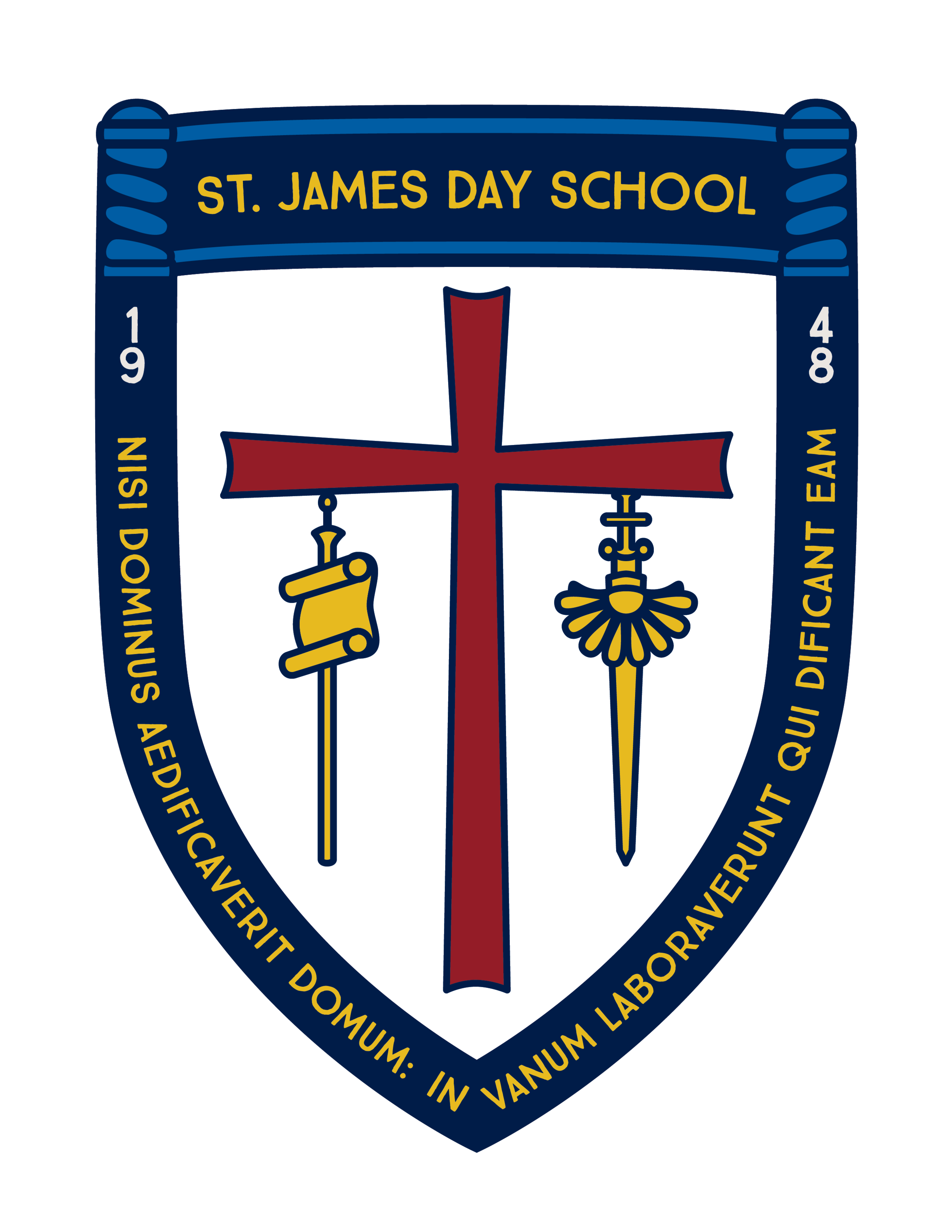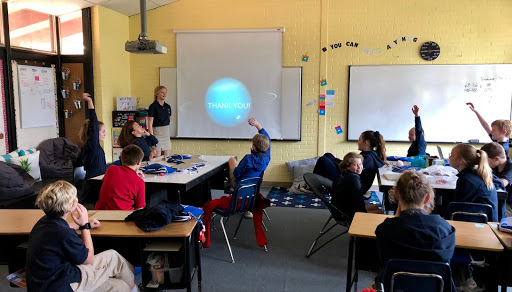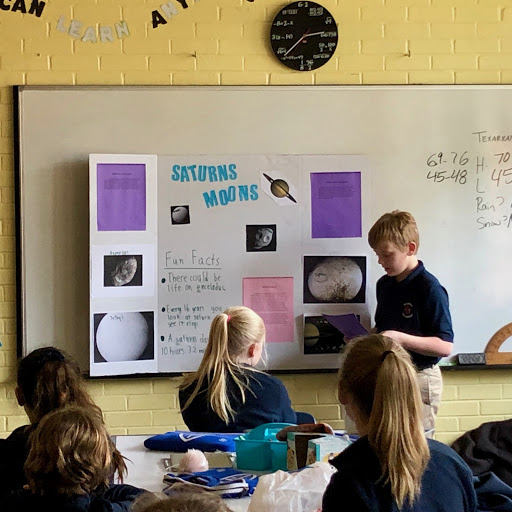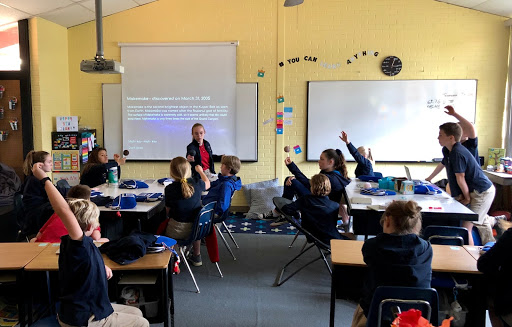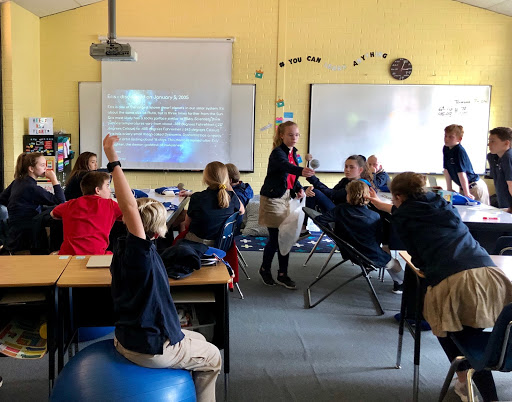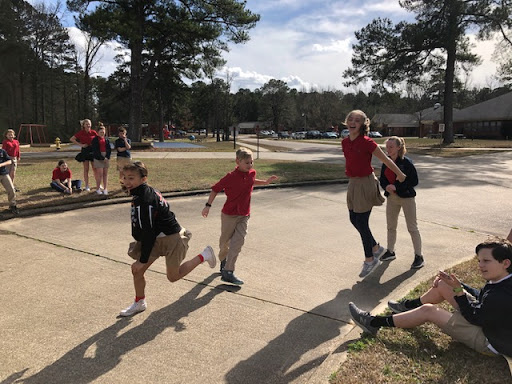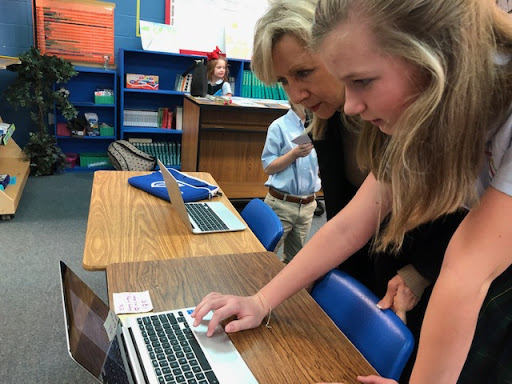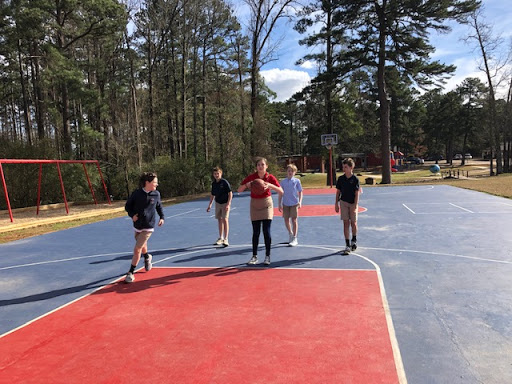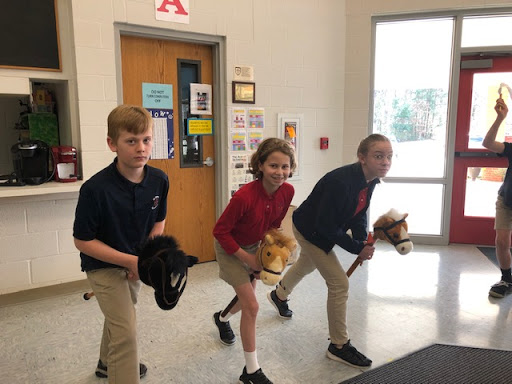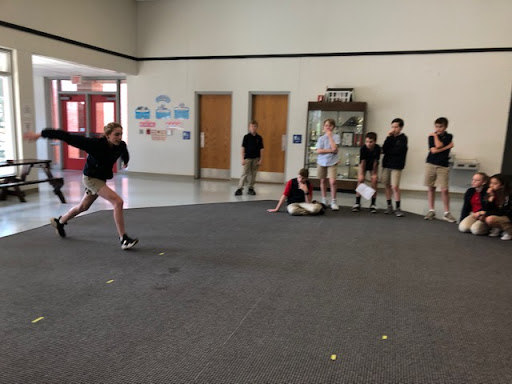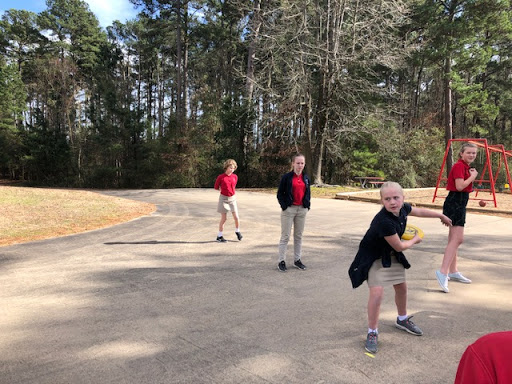6TH GRADE NEWS
MATH AND SCIENCE:
ONE SMALL STEP…ONE GIANT LEAP
We choose to go to the moon. We choose to go to the moon in this decade and do the other things, not because they are easy, but because they are hard, because that goal will serve to organize and measure the best of our energies and skills, because that challenge is one that we are willing to accept, one we are unwilling to postpone, and one which we intend to win, and the others, too. ~John F. Kennedy, 1962
It’s difficult for our kids to imagine what it was like before the lunar landing, to imagine a time when going to the moon was one of the greatest challenges set before our nation. We spent some time reflecting on the greatness of landing on the moon by looking both to the past, as well as to the future. What future? What is our “next giant leap”? Mars!
The middle school took our learning out of this world by diving in to a multi-grade investigation of the solar system. Fifth grade stayed somewhat close to home with their research of the Sun, Earth, and Moon. Sixth grade traveled far and wide as they studied the other planets and moons of our solar system, including the dwarf planets (can we please bring Pluto back?). Seventh grade took a deep look into what it would take for humans to live on Mars. Each student and grade shared their findings with one another in whatever manner they found most effective and engaging. We had great fun learning, as the students became the teachers.
LANGUAGE ARTS AND HISTORY:
Sixth graders recently completed biographies of Ancient Greek figures. They researched the lives of various people, from Socrates to Homer to Archimedes, and then created a Google slide magazine presentation of their historical figure. Biography projects are an excellent tool for in-depth learning about the society and culture of a civilization. We were excited to show grandparents our online magazines! As a celebration of the completion of our Ancient Greece unit, we hosted an Olympics. The Olympic committee chose 6 events for competition, and only chose events from the ancient games. Students reprised their roles in the three city-state debate, so Athens, Sparta, and Corinth competed. Just like in the ancient games, there were no medals; only one winner was declared for each event. The city-state with the highest total score was Corinth. What a great way to end our exploration of Ancient Greece!
